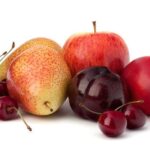Diarrhea, characterized by loose and watery stools, occurs when the digestive process speeds up, preventing proper water and mineral absorption. What you eat significantly impacts your gut health, so understanding potential food triggers is key. But Does Greasy Food Make You Poop? Let’s explore the connection.
Greasy Food and Your Gut: The Potential for Diarrhea
While individual reactions vary, fried, greasy, and fatty foods are often implicated in triggering or worsening diarrhea symptoms. Foods high in saturated and trans fats can disrupt the digestive process. The breakdown of excess fat in the colon (large intestine) can lead to the release of extra fluids, contributing to diarrhea.
Besides greasy foods, other dietary factors can also contribute to diarrhea:
- Spicy Foods: Capsaicin, the compound responsible for the heat in peppers, can irritate the digestive tract in some individuals.
- Sugar and Artificial Sweeteners: High fructose intake (from fruits and juices) can overwhelm the body’s digestive capacity. Sugar alcohols like sorbitol, xylitol, and mannitol can also irritate the digestive system.
- Caffeine: As a stimulant, caffeine can accelerate the digestive process, potentially leading to diarrhea.
- Lactose-Containing Foods: Individuals with lactose intolerance may experience diarrhea after consuming milk, cheese, and other dairy products.
It’s important to note that avoiding these foods is advisable not only for preventing diarrhea but also when you’re already experiencing symptoms.
Other Potential Food-Related Causes of Diarrhea
Beyond the direct impact of certain foods, diarrhea can also stem from food poisoning, food sensitivities, and food intolerances.
Food Poisoning
Consuming food or water contaminated with viruses or bacteria can lead to gastroenteritis, an inflammation of the stomach and intestines, with diarrhea as a prominent symptom.
Food Intolerances
Food intolerances occur when the body struggles to properly digest certain foods or ingredients. Common examples include gluten and lactose intolerance.
Managing and Preventing Food-Triggered Diarrhea
If you’re prone to diarrhea, several strategies can help maintain digestive health.
Keep a Food Diary
Tracking your food intake and correlating it with diarrhea episodes can help identify trigger foods. Record everything you eat and drink, including condiments and seasonings, along with the timing of your bowel movements and your stress levels. Look for patterns over several weeks to pinpoint problem foods. Consult with a healthcare professional to discuss your findings.
Break Down Problem Meals
If a meal with multiple components triggers diarrhea, try isolating individual ingredients to identify the culprit. An elimination diet, guided by a healthcare provider or dietician, can also be helpful in identifying trigger foods.
Seeking Relief and Further Information
For effective diarrhea relief, consider over-the-counter medications like IMODIUM®. These products contain loperamide, which helps relieve diarrhea and restore the digestive system to its normal rhythm. If symptoms persist for more than two days or worsen, consult a healthcare professional.
Paying attention to your diet can be a valuable tool in preventing future episodes of diarrhea. Learn more about what foods can help you recover after diarrhea onset to make informed dietary choices.
